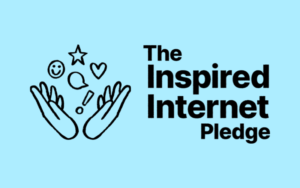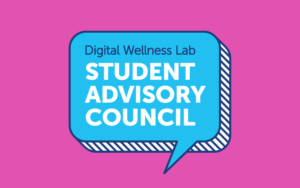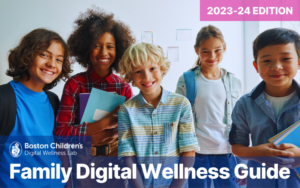Overview
Our research strategy is focused on executing multi-methods research and disseminating what we learn through reports, publications, speaking engagements, family-focused content, and direct engagement with the tech/media and healthcare industries.
For the tech and media industry, we seek to embed what we’re learning into the decisions leaders are making every day about product, policy, and user supports to ensure young people’s social, emotional, and mental wellbeing and overall health are at the forefront.
For the healthcare industry, we share our findings to help clinicians better understand the impacts of interactive media on child and teen health and behavior.
Areas of Study

Mental, Social, and Emotional Health
We are working to better understand how engagement with the digital ecosystem affects young people’s mental, social, and emotional health in both positive and negative ways. We aim to identify opportunities to mitigate or eliminate harms and to elevate positive experiences for short- and long-term mental health outcomes for all young people.

Prosocial Development
Using both survey and experimental methods, we seek to identify how technology and media can be used in innovative ways to promote children’s, teens’, and young adults’ sense of belonging, prosocial behaviors, and their development of social-emotional competencies (such as empathy, self-regulation, self-awareness, social-awareness, and relationship building).

Problematic Interactive Media Use (PIMU)
Through our close engagement with the Clinic for Interactive Media and Internet Disorders (CIMAID) and other speciality clinical departments at Boston Children’s Hospital and Harvard Medical School, we are working to identify the characteristics and risk factors of PIMU and to design intervention and treatment strategies to promote healthier media habits for youth and their families.
We are particularly interested in understanding the impacts of technology and interactive media through the lenses of social media, video games, and artificial intelligence (AI), as these are the technologies most often used by youth and most likely to have the greatest impacts.
Pulse Surveys
We conduct Digital Wellness Pulse Surveys periodically throughout the year to stay current on topics related to children’s and adolescents’ media and technology use. Surveys focus on asking teens and young adults about a range of topics to help us better understand their perspective on different aspects of the digital environment and the effects of their technology and media use on their health and wellbeing.
-
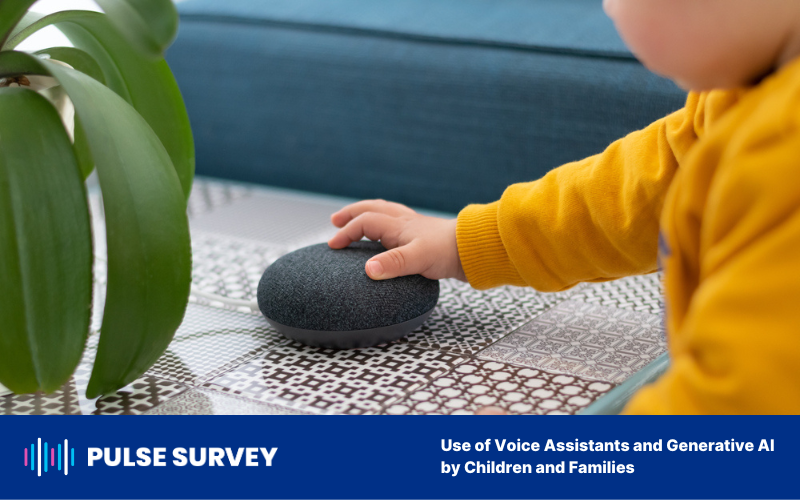
Pulse Survey: Use of Voice Assistants and Generative AI by Children and Families
In this Pulse Survey, we asked parents about their family’s use, and their perceived impact, of Voice Assistants and Generative AI.
-
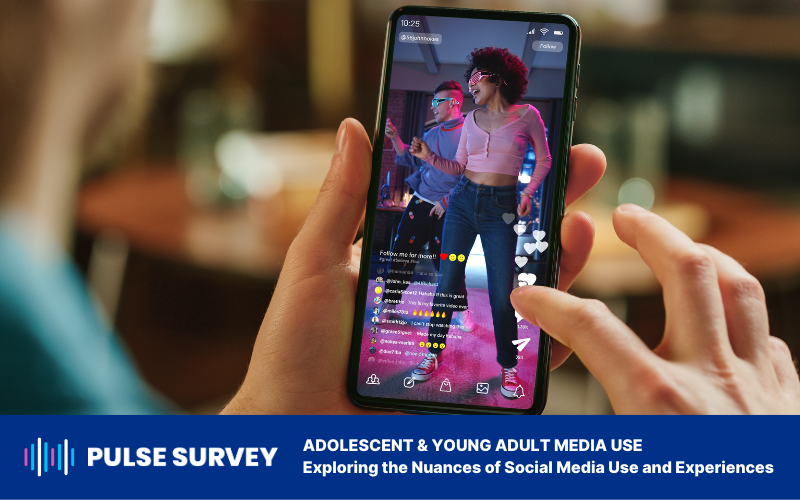
Pulse Survey — Exploring the Nuances of Young People’s Social Media Use and Experiences
In our most recent survey, Exploring the Nuances of Young People’s Social Media Use and Experiences, we asked 1,505 young people between the ages of 15 and 22 about their…
-
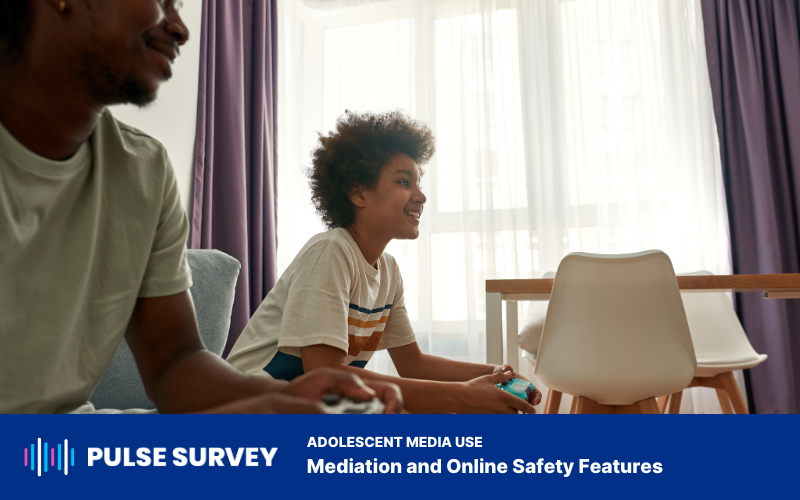
Adolescent Media Use: Mediation and Online Safety Features
In this survey, Adolescent Media Use: Mediation and Online Safety Features, we asked 1,502 adolescents between the ages of 13 and 17 about their general media use and its impact…
Research Briefs
In addition to our own research, we rely on the work of other researchers and organizations to gain an understanding of the effects of digital media and technology on young people. Research briefs are one way that we share the relevant findings of a particular study (or research on a specific topic) with our supporters and the general public.
-
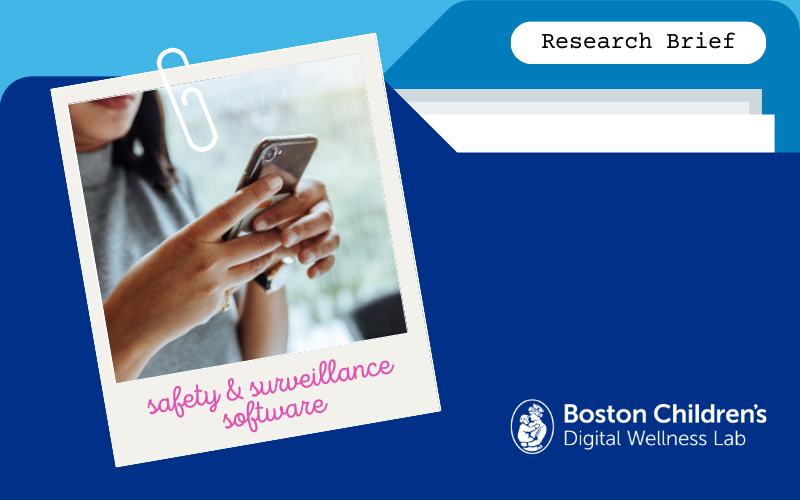
Safety and Surveillance Software Practices as a Parent in the Digital World
Introduction For many parents, the digital landscape their children are growing up in is vastly different than the one they grew up in. In a recent survey, 66% of parents…
-
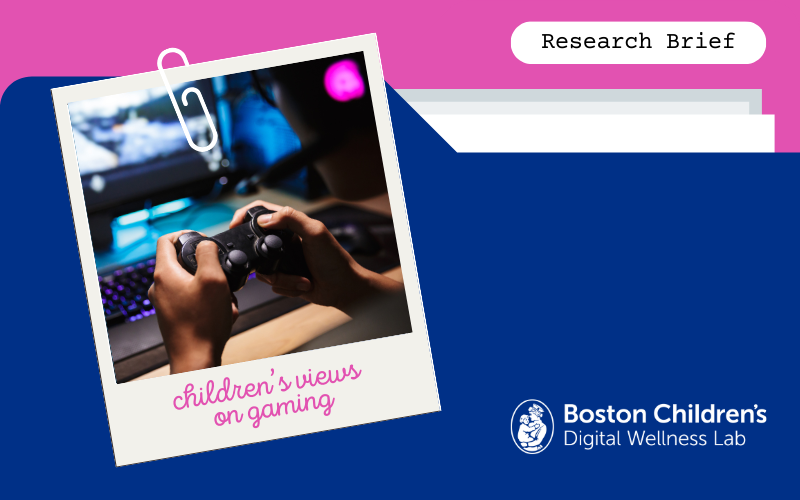
Children’s Views on Gaming
The Landscape of Gaming for Children and Adolescents Video gaming is an extremely popular pastime for children, adolescents, and young adults. In the U.S., teens and tweens who game are…
-
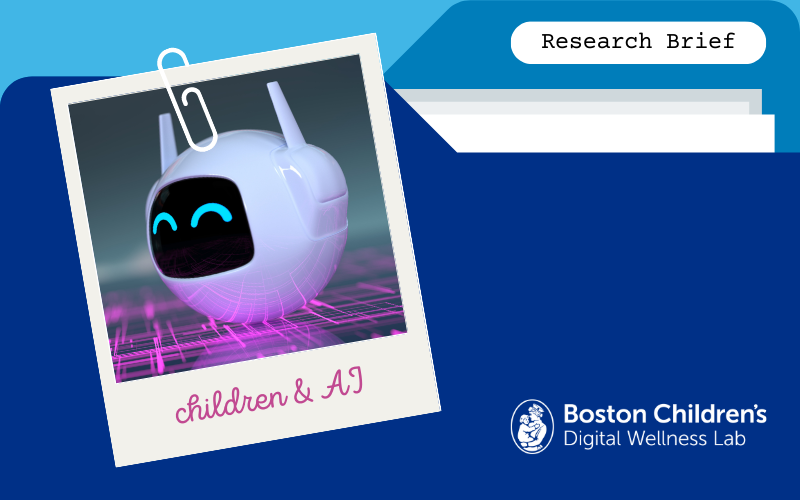
Children & Artificial Intelligence
Introduction & Methods This literature review examines the existing research on artificial intelligence (or, AI) in media and human relations. Although it is used in a variety of contexts and…
Ongoing Research Studies
We conduct longer-form academic research to more deeply explore key questions that are raised through our Pulse Surveys and in our engagement with stakeholders in the digital wellness and tech/media space.

Studying the social gaming experiences of young people
The Lab is continuing its collaboration with researchers at the University of Michigan and the University of Washington to study the gameplay experiences, conceptualizations, emotional drivers, and decision-making processes of children and teens (aged 8-14) who play online multiplayer games such as Roblox, Minecraft, and Fortnite.

Studying the impacts of social media on young teens
This study, in collaboration with Wellesley College, will shed light on important components of young teens’ (aged 13-15) social media ecology as well as offer proof-of-concept of the multi-method approach needed to enable funding to include larger, more geographically dispersed adolescent samples.

Helping clinicians to identify and treat PIMU
In this ongoing project, the Lab is working closely with the Clinic for Interactive Media and Internet Disorders (CIMAID) team to develop and validate an in-office screener and brief intervention to support clinicians in identifying and treating Problematic Interactive Media Use (PIMU) in primary pediatric settings.

Investigating the key risks factors for PIMU
This project, a collaboration between the Lab and the Clinic for Interactive Media and Internet Disorders (CIMAID), entails a clinical chart review investigating commonalities among previous and current CIMAID patients in order to identify key risk factors for Problematic Interactive Media Use (PIMU).

